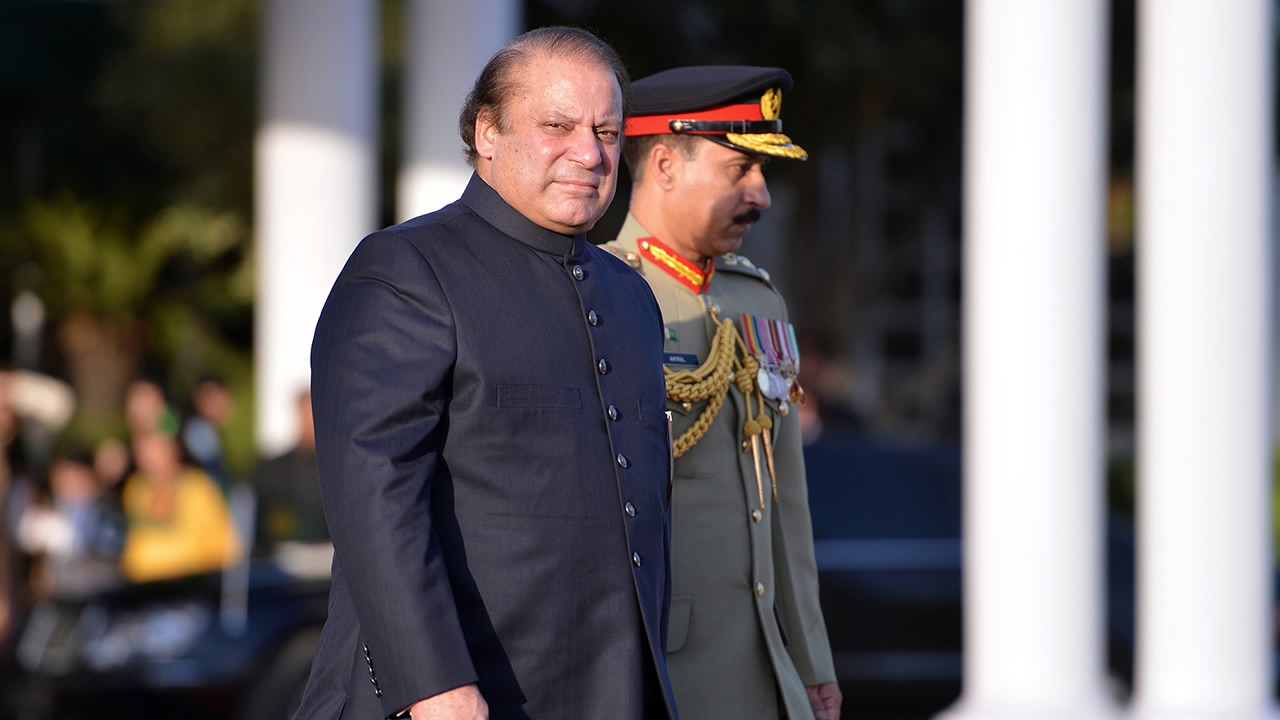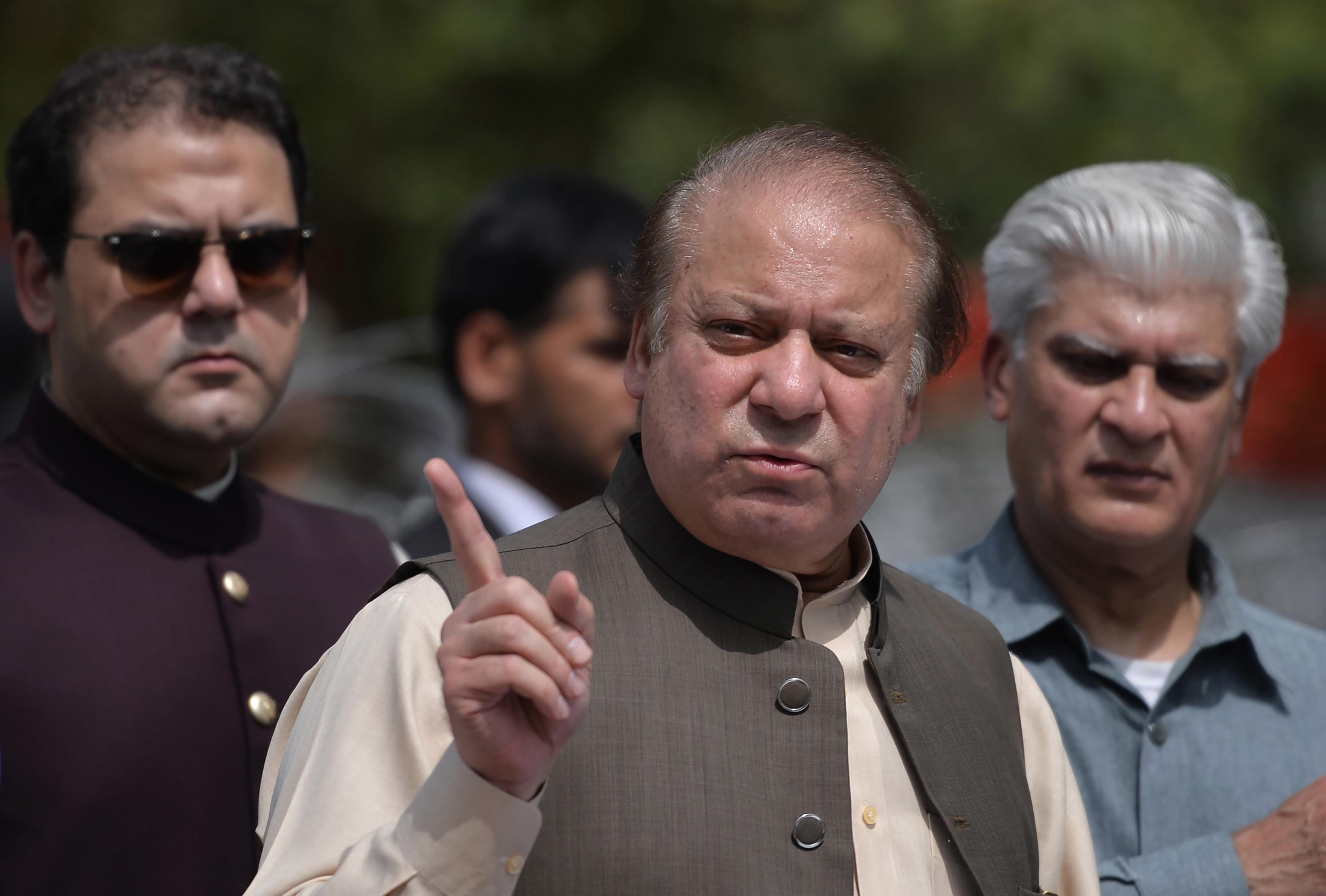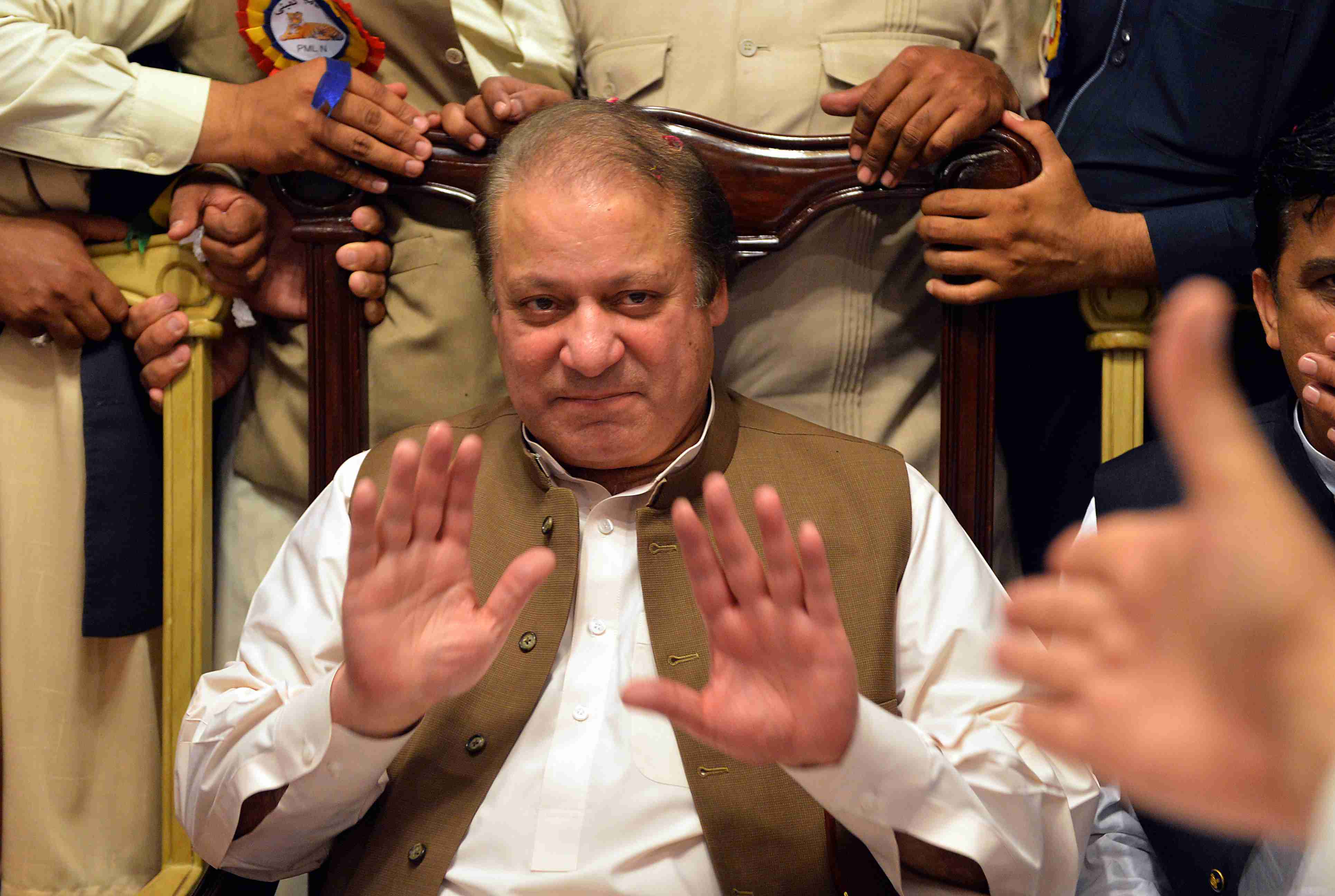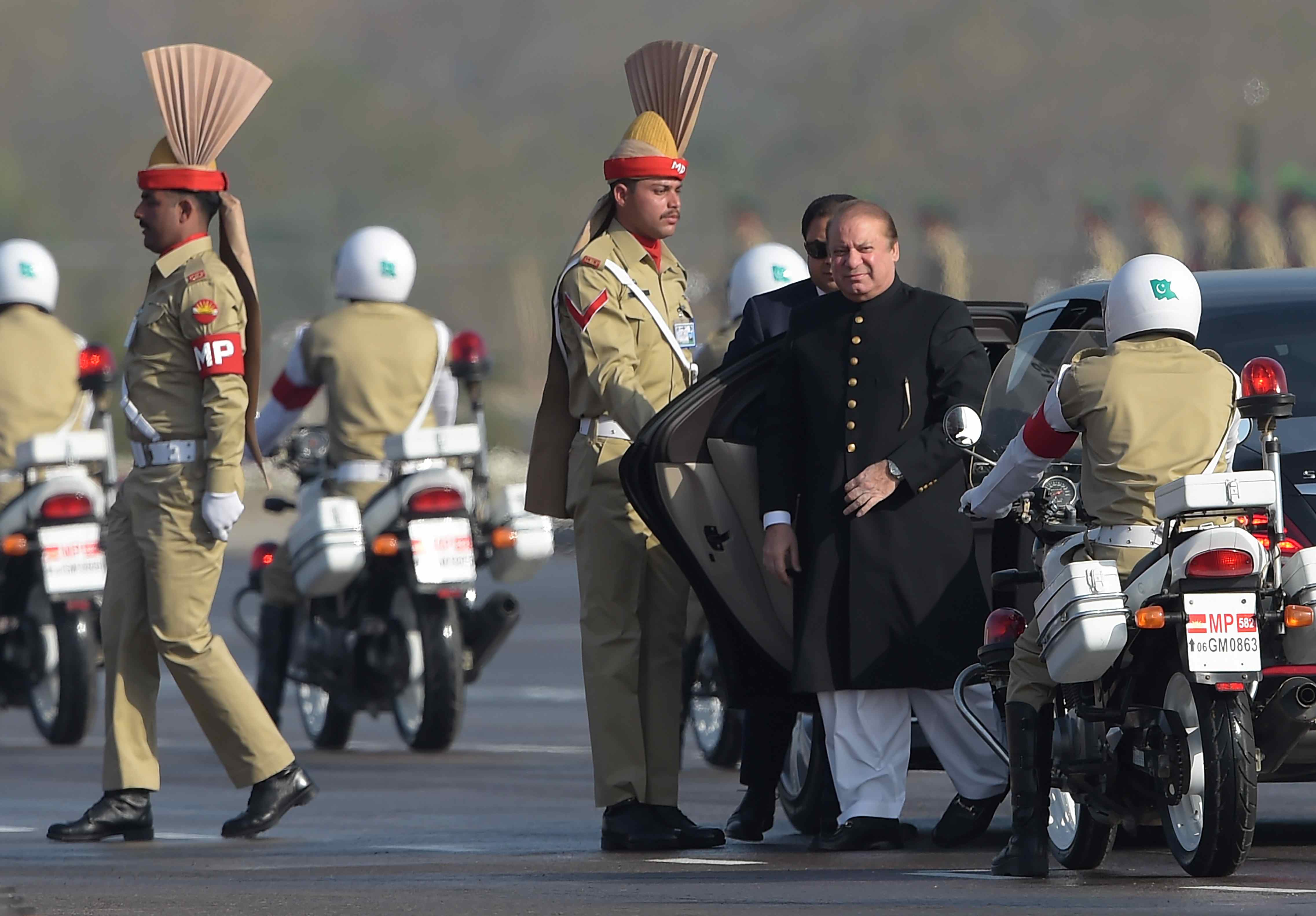
Politics
22:25, 28-Jul-2017
Pakistan PM resigns: Why and what's next?

Pakistan's Prime Minister Nawaz Sharif was ousted from power on Friday by the country's Supreme Court, marking an inglorious end to his third term in power ahead of general elections next year.
Corruption scandal
The case stems from leaked documents, which revealed that Sharif's family owned overseas properties and offshore companies. These assets were named after his three children and were not declared on the family's wealth statement.

Then-Pakistan Prime Minister Nawaz Sharif speaks with media after appearing before an anti-corruption commission at the Federal Judicial Academy in Islamabad, Pakistan on June 15, 2017. /AFP Photo
Then-Pakistan Prime Minister Nawaz Sharif speaks with media after appearing before an anti-corruption commission at the Federal Judicial Academy in Islamabad, Pakistan on June 15, 2017. /AFP Photo
Supreme Court still organized a joint investigation team in April 2017 as the family had failed to account for the source of its financial assets.
Sharif denied that the offshore companies abroad were used for acquiring foreign assets and claimed those properties were acquired legitimately and that he personally does not own them.
This issue has led to mass protests in Pakistan and opposition political groups accuse his family of relying on political influence to accumulate wealth illegally.

File photo: Then-Pakistan Prime Minister Nawaz Sharif gestures as he attends a meeting of traders during his election campaign in Islamabad, Pakistan on May 1, 2013. /AFP Photo
File photo: Then-Pakistan Prime Minister Nawaz Sharif gestures as he attends a meeting of traders during his election campaign in Islamabad, Pakistan on May 1, 2013. /AFP Photo
After months of hearings, the panel finally ruled that Sharif was considered to be dishonest to parliament and to the judicial system, and was no longer deemed fit for the office of Prime Minister.
Sharif accepted the court's verdict but had "strong reservations" about the court's decision, said Sharif's spokesman.
What's next?
With the disqualification, Sharif can no longer hold any parliamentary position, or run in any election campaigns nor lead his party, the Pakistan Muslim League-Nawaz (PMLN).
Sharif has already recommended his younger brother Shahbaz Sharif, who is currently the Chief Minister of Punjab, to be his successor to contest on the National Assembly where his party and coalition partners command a 209-seat majority in the 342-seat house.

Then-Pakistan Prime Minister Nawaz Sharif (2R) arrives at the venue for the Pakistan Day military parade in Islamabad, Pakistan on March 23, 2017. /AFP Photo
Then-Pakistan Prime Minister Nawaz Sharif (2R) arrives at the venue for the Pakistan Day military parade in Islamabad, Pakistan on March 23, 2017. /AFP Photo
Opposition groups will also have a chance to nominate a candidate for the prime minister's post, but chances of winning are slim.
Meanwhile, an early election is unlikely. Pakistan's constitution states that it can only be called by the president on the advice of the prime minister, so a new prime minister must take office first.

SITEMAP
Copyright © 2018 CGTN. Beijing ICP prepared NO.16065310-3
Copyright © 2018 CGTN. Beijing ICP prepared NO.16065310-3